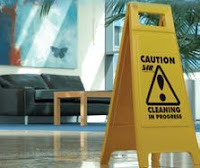 Recently a flat that I own and sublet has been transferred to another agent by the directors of the RMC. The first knowledge I had of this was on being informed by the new agent. The directors of the RMC had not undertaken any consultation with their members. In fact they had (at the date of writing) failed to advise me of their names, how they were qualified and why they are changing agents.
Recently a flat that I own and sublet has been transferred to another agent by the directors of the RMC. The first knowledge I had of this was on being informed by the new agent. The directors of the RMC had not undertaken any consultation with their members. In fact they had (at the date of writing) failed to advise me of their names, how they were qualified and why they are changing agents.I do know on the grapevine that they are owners of multiple units in the block and I have assumed therefore that their motivation is entirely based on maximising short term returns. The new agent is cheap, cheap, cheap. The new agent is not affilliated with ARMA or the RICS. The new agent is not accredited for any compliance or health and safety activities. The new agent is (unusually when such changes are made) not based locally. The directors and I are clearly not aligned. I will ask for a copy of the contract and give them an opportunity to perform. Watch this space!
Sorry for the laboured introduction but other people are taking decisions about your property all the time. Why, when this is often your biggest investment, would you allow that to happen? You wouldn't tolerate it with your car... I feel stupid having let it get to this stage.
It is important to stay informed and get involved and take action when necessary. Residents' groups, in whatever form always need interested volunteers. A watching eye over your agent, landlord, developer and other resident directors tends, in my experience, to force an alignment of views. After all, most of us want clean, safe and tidy common areas since this clearly adds value. It's just that we might all have different ideas about how to get there and at what cost. Having a structured and ongoing conversation with all parties generally makes for consensus and partnership - old fashioned concepts I know - but firing off angry emails is a modern curse, not born of common sense, proportion and cooperation.
So, get involved, understand the issues, be constructive and collaborative and, most of all, don't let it subsume your every waking moment. As we all know, obsession leads to irrationality.
